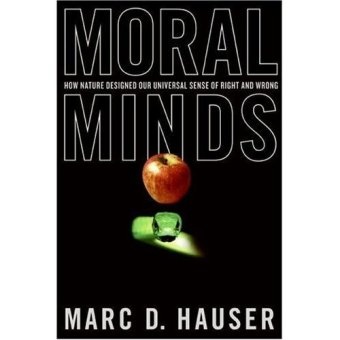Ulteriori informazioni
Zusatztext "Pathbreaking... relevant to some of the most fundamental contemporary debates in philosophy and public life." Informationen zum Autor Marc D. Hauser is the author of the highly acclaimed Wild Minds . He has been featured in the New York Times, USA Today, the Washington Post , the Wall Street Journal , and the Boston Globe , as well as on Today,The Early Show, PBS's Scientific American Frontiers, and NPR. Hauser is Professor of Psychology, Organismic and Evolutionary Biology, and Biological Anthropology at Harvard University, where he is director of the Cognitive Evolution Laboratory and co-director of the Mind, Brain and Behavior Program. He is the recipient of a National Science Foundation Young Investigator Award, a Guggenheim Award, a College de France Science medal, and a Harvard College Professorship chair for his excellence in teaching. Klappentext In this groundbreaking book! bestselling author and scientist Hauser debates that the dominant view of moral judgment in humans is not that we reach moral decisions by consciously reasoning from what society determines is right or wrong! but that over time! humans have developed a moral instinct. Zusammenfassung Marc Hauser's eminently readable and comprehensive book Moral Minds is revolutionary. He argues that humans have evolved a universal moral instinct, unconsciously propelling us to deliver judgments of right and wrong independent of gender, education, and religion. Experience tunes up our moral actions, guiding what we do as opposed to how we deliver our moral verdicts. For hundreds of years, scholars have argued that moral judgments arise from rational and voluntary deliberations about what ought to be. The common belief today is that we reach moral decisions by consciously reasoning from principled explanations of what society determines is right or wrong. This perspective has generated the further belief that our moral psychology is founded entirely on experience and education, developing slowly and subject to considerable variation across cultures. In his groundbreaking book, Hauser shows that this dominant view is illusory. Combining his own cutting-edge research with findings in cognitive psychology, linguistics, neuroscience, evolutionary biology, economics, and anthropology, he examines the implications of his theory for issues of bioethics, religion, law, and our everyday lives. ...

